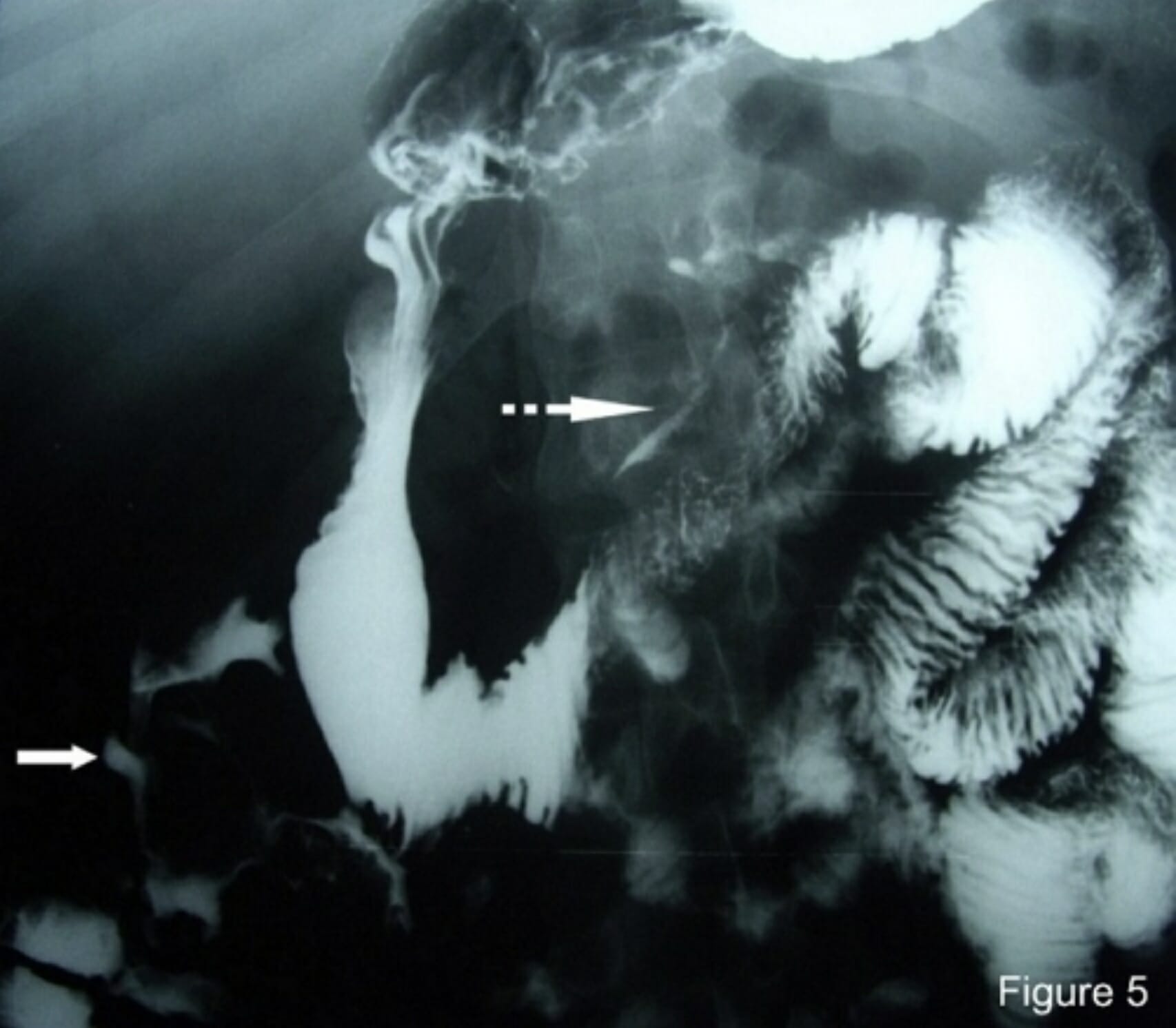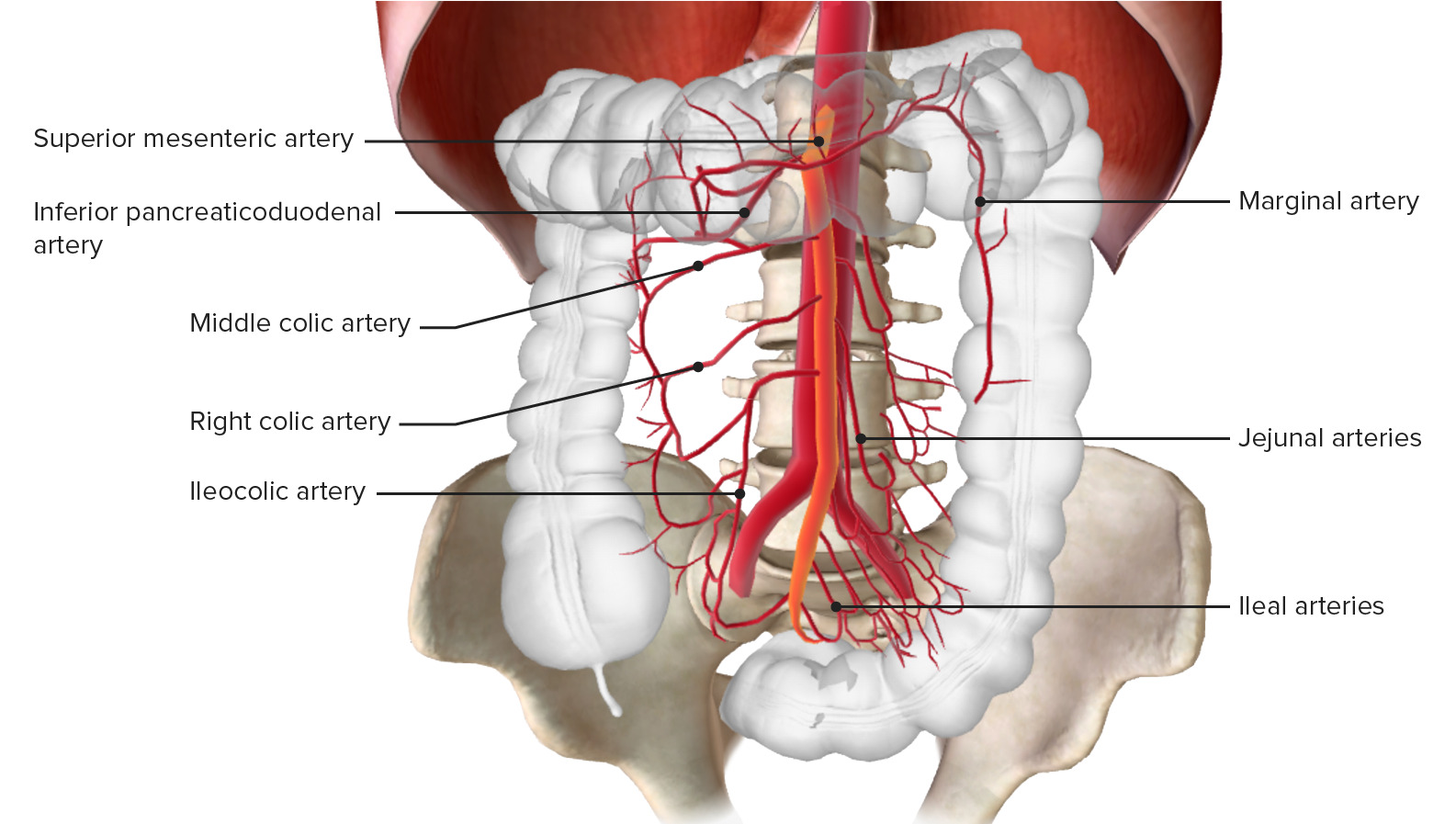Playlist
Show Playlist
Hide Playlist
Acute Mesenteric Ischemia: Management
-
Emergency Medicine Bord Mesenteric Ischemia.pdf
-
Download Lecture Overview
00:01 Talking about treatment, we wanna talk about our goals. 00:04 The ultimate goal here is to restore blood flow to the tissue. 00:08 For certain problems, we wanna make sure we decrease vasospasm. 00:13 That we’re hopefully opening up those vessels as much as we possibly can and we also wanna decrease clot propagation. 00:19 So we don’t want the clot to go ahead and get bigger and get more clots. 00:22 Firstly, we wanna stabilize our patient. 00:26 So we wanna think about our ABC’s. 00:28 Always, we wanna think about our ABC’s. 00:30 We wanna fluid resuscitate our patient. 00:33 We wanna ensure that they’re hemodynamically stable. 00:36 We wanna consider giving vasopressors for certain patients. 00:41 So that would be low dose dopamine or dobutamine, but we wanna always balance this with minimizing mesenteric vasoconstriction. 00:48 So for sure, we run the risk when we give some of these medications that we can cause further constriction of those blood vessels. 00:57 So this is all a risk benefit analysis and always, you wanna make sure that you’re thinking about that risk benefit ratio. 01:04 You wanna consider antibiotics for patients who have peritonitis or patients in whom you’re worried that that might develop. 01:12 The antibiotics initially for choice would be ceftriaxone or ciprofloxacin plus metronidazole. 01:20 You also wanna involve your surgical team early especially for patients who have peritonitis or perforation, those are emergent surgical diagnosis. 01:29 They need to go immediately to the operating room. 01:32 You potentially may wanna consider getting a pre-operative angiography study. 01:36 Pre-operative angiography has the ability to identify a distinct vessel occlusion so potentially can help direct the surgical team, and you can also directly infuse Papaverine which can help dilate the blood vessel and that can be directly injected or infused into the occluded vessel and sometimes, can provide the patient with some additional benefit. 01:56 Here, you can see a picture of an angiogram and this is what it basically will look like for patients who are undergoing the study. 02:05 So, dye is injected under direct visualization and the vessels that are getting blood flow or that have open blood flow are those black vessels. 02:14 Over on the right side of the picture, you could see that there are some vessels that aren’t necessarily lighting up as they’re supposed to. 02:21 Now, additional management considerations. 02:25 So for non-occlusive mesenteric ischemia, so that’s when you have the vasospasm or you’re not getting enough blood flow, you wanna treat the underlying cause. 02:33 You wanna also consider Papaverine injection on that angiography study if there is vasospasm. 02:40 The Papaverine can help dilate the blood vessel and decrease some of that vasospasm. 02:46 For mesenteric venous thrombosis, it’s divided into patients who have no peritoneal signs or patients who have peritoneal signs. 02:54 For patients who don’t have any peritoneal signs, those patients can be treated with a heparin infusion. 02:59 And you wanna treat it similarly to a patient that would have a DVT or a pulmonary embolus. 03:05 For patients who have peritoneal signs, those patients again require surgical consultation. 03:11 You also wanna consider for patients with mesenteric venous thrombosis, completing a hypercoagulable work up to figure out why they have a clot and also to consider long term anticoagulation for those patients to prevent them from getting venous thrombosis in the future.
About the Lecture
The lecture Acute Mesenteric Ischemia: Management by Sharon Bord, MD is from the course Abdominal and Genitourinary Emergencies.
Included Quiz Questions
What is the ultimate goal in the management of mesenteric ischemia?
- Restore blood flow
- Stabilize the patient
- Decrease vasospasm
- Decrease clot propagation
- Minimize mesenteric vasoconstriction
What antibiotic coverage is suggested for patients with mesenteric ischemia and suspected peritonitis?
- Ceftriaxone alone, or ciprofloxacin and metronidazole together
- Penicillin
- Vancomycin
- Cefuroxime
- Levofloxacin
Customer reviews
5,0 of 5 stars
| 5 Stars |
|
5 |
| 4 Stars |
|
0 |
| 3 Stars |
|
0 |
| 2 Stars |
|
0 |
| 1 Star |
|
0 |





